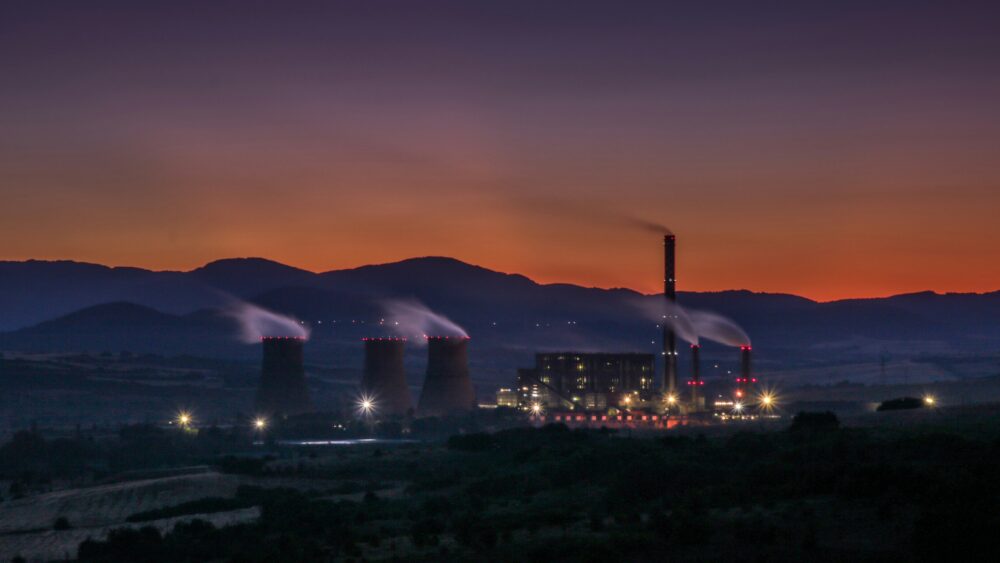As the world shifts towards renewable energy, Nigeria, Africa’s largest economy, is grappling with the economic implications of this transition. The move from fossil fuels to renewable energy is not just a technical challenge but also an economic one, with significant consequences for industries, employment, and the nation’s GDP. Rhinobay Energy is committed to ensuring that Nigeria remains economically resilient during this energy transition.
The Need for Energy Transition in Nigeria
Nigeria’s energy sector has historically been dominated by fossil fuels, with oil and gas accounting for a significant portion of the country’s revenue and exports. However, the global shift towards renewable energy, driven by concerns over climate change and the need for sustainable development, has put pressure on Nigeria to diversify its energy mix. The transition to renewable energy sources, such as solar, wind, and hydro, is essential not only for environmental reasons but also for ensuring long-term energy security and economic stability.
Rhinobay Energy recognizes the critical need for this transition and is actively investing in renewable energy projects across Nigeria. By doing so, the company is helping to lay the foundation for a more sustainable and diversified energy sector, which is essential for the country’s economic future.
Economic Challenges of Energy Transition
1. Impact on the Oil and Gas Industry
The oil and gas industry is a cornerstone of Nigeria’s economy, contributing significantly to government revenue, foreign exchange earnings, and employment. The transition to renewable energy poses a challenge to this industry, as it could lead to reduced demand for fossil fuels and, consequently, lower revenues for the government. This shift could also result in job losses in the oil and gas sector, further exacerbating economic challenges.
Rhinobay Energy is addressing these challenges by diversifying its energy portfolio to include both non-renewable and renewable energy solutions. By investing in renewable energy, Rhinobay Energy is not only contributing to a more sustainable future but also ensuring that it remains a key player in Nigeria’s evolving energy landscape.
2. Investment Requirements
The transition to renewable energy requires significant investment in new infrastructure, technology, and skills development. This is particularly challenging for a country like Nigeria, where access to finance is limited, and the cost of capital is high. The government and private sector must work together to mobilize the necessary resources to fund this transition.
Rhinobay Energy is playing a vital role in attracting investment into Nigeria’s renewable energy sector. Through strategic partnerships with international investors and technology providers, Rhinobay Energy is helping to secure the capital needed to develop large-scale renewable energy projects, such as solar farms and hydropower stations.
3. Economic Diversification
The energy transition presents an opportunity for Nigeria to diversify its economy away from its dependence on oil and gas. By developing a robust renewable energy sector, Nigeria can create new industries, generate employment, and stimulate economic growth. This diversification is essential for reducing the country’s vulnerability to fluctuations in global oil prices and ensuring long-term economic stability.
Rhinobay Energy is at the forefront of this economic diversification, leading the way in the development of renewable energy projects that can drive economic growth. The company is also investing in training and skills development to ensure that Nigeria’s workforce is prepared for the jobs of the future.

Opportunities Presented by the Energy Transition
1. Job Creation
While the energy transition may lead to job losses in the fossil fuel sector, it also presents opportunities for job creation in renewable energy. The development of solar, wind, and hydro energy projects requires a skilled workforce, creating new employment opportunities in construction, engineering, and maintenance.
Rhinobay Energy is committed to creating jobs through its renewable energy projects. The company is investing in training programs to equip local communities with the skills needed to work in the renewable energy sector, ensuring that the benefits of the energy transition are widely shared.
2. Energy Access and Rural Development
One of the most significant opportunities presented by the energy transition is the potential to improve energy access in rural areas. Renewable energy technologies, such as solar and mini-grid systems, can provide electricity to communities that are not connected to the national grid, supporting rural development and reducing poverty.
Rhinobay Energy is actively involved in expanding energy access in rural Nigeria through its renewable energy initiatives. By deploying off-grid solar systems and mini-grids, Rhinobay Energy is helping to bring electricity to remote communities, improving quality of life and supporting economic development.
3. Environmental and Health Benefits
The transition to renewable energy also brings significant environmental and health benefits. By reducing reliance on fossil fuels, Nigeria can lower its greenhouse gas emissions, improve air quality, and reduce the incidence of respiratory diseases caused by air pollution.
Rhinobay Energy’s commitment to renewable energy is driven by a desire to contribute to a cleaner, healthier environment. The company’s renewable energy projects are designed to minimize environmental impact and promote sustainable development, ensuring a better future for all Nigerians.
Conclusion
The economic implications of the energy transition in Nigeria are profound, with both challenges and opportunities. While the shift away from fossil fuels presents risks to the oil and gas industry and requires significant investment, it also offers a pathway to economic diversification, job creation, and improved energy access. Rhinobay Energy is playing a crucial role in navigating this transition, ensuring that Nigeria remains economically resilient while embracing a more sustainable energy future. Through its investments in renewable energy, skills development, and community engagement, Rhinobay Energy is helping to shape a brighter, more sustainable future for Nigeria and West Africa.














Leave a Reply